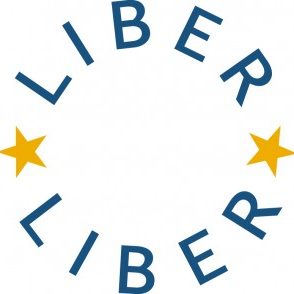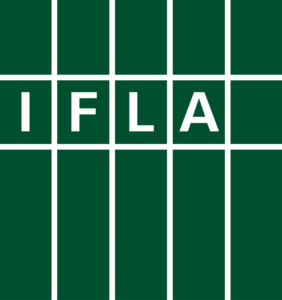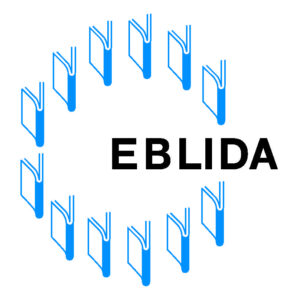Be Open to Open Science: Stakeholders Should Prepare for the Future, not Cling to the Past
On May 27 2016, EU Member States affirmed their commitment to accelerating the advancement of knowledge and boosting innovation and competitiveness in Europe by adopting Council Conclusions on the Transition Towards and Open Science System.



We, the European and international library community, welcome this development and support a rapid transition towards Open Science as a high priority for us and our users, as outlined clearly in the LIBER response to the Amsterdam Call for Action.
Member States should be in no doubt that their commitment to Open Science will result in a healthier and more efficient research ecosystem, a greater impact for research funding, and a better environment for knowledge transfer. This move will not only boost European competitiveness, but will establish Europe as a world leader in data-driven innovation.
It is therefore with dismay that we note negative reactions to the Conclusions, from stakeholders with an interest in maintaining the status quo: in particular the International Association of STM Publishers (STM). Given the stakes, we feel compelled to respond.
Sustainability: the EU is leading the field, not going against the tide, by aiming for immediate open access by 2020
In stating that 80% of scientific publications are published under the subscription model, STM misleadingly gives the impression that 80% of the world’s research publications are only available to read under a subscription model. Libraries worldwide have long worked to encourage researchers to place copies of their work in institutional repositories (notably under green open access schemes), with significant success.
In reality, therefore, we have reached a tipping point. Over 50% of scholarly publications are Open Access (OA). Investment by the EU and other governments in infrastructure such as OpenAire, Scielo and SHARE means that not only are these publications freely available, they are now more discoverable and accessible by end users than ever before.
Cost: immediate open access will not place a disproportionate cost burden on European countries and researchers
It is disingenuous to say that Gold OA always means that the author pays. This is not the case. There are several alternative models e.g. the Open Library of the Humanities offers an institutional membership model and several universities have launched their own OA presses.
As for ‘traditional’ author-pays models, some member states are pursuing off-setting agreements. However, as pointed out by LERU, confidentiality clauses make negotiations opaque, and risk leading to anti-competitive practices. Member States should work together to encourage transparency in such negotiations.
In regards to Green OA, it is true that publications deposited in institutional repositories are often, but not always, only made available to the public after a pre-defined embargo period. That Member States call for embargoes to be as short as possible, rather than prescribing a one-size-fits-all solution, reflects existing sensitivity to differences between countries and disciplines, and the general direction of funder mandates.
Looking ahead, as arguably the world’s leading producer of scientific publications, EU Member States are well placed to explore alternative business models and shape the future scholarly communications market in a way that ensures a sustainable OA publishing ecosystem.
Open Science: bringing European research into the future
The Council Conclusions not only seek to complete the switch to OA, but also to bring European research into the Open Science era. This will strengthen its societal and economic impact. As the research process and resulting data become more open, researchers themselves will be recognised more for the quality and real impact of their research than the impact factor of the journals where they are published. This will incentivise better and more relevant work.
The Open Science Policy Platform is a very positive development. Thanks to its multistakeholder make-up, it will be essential in helping Member States shape this emerging ecosystem. We fully expect that the members of the Platform will be transparent in their dealings and engage fully with their wider communities.
Copyright: a TDM exception is necessary to support investment, innovation and jobs
There is evidence enough to show that EU copyright revisions which facilitate TDM will increase the return on research investments and open up huge innovation opportunities. The Hague Declaration on Knowledge Discovery in the Digital Age recognises TDM’s societal and economic potential, and its call for reform has been endorsed by numerous organisations and individuals.
Our own figures illustrate the huge cost burden for institutions of negotiating and managing the licence agreements imposed by some publishers. This obviously restricts the development of innovation and new businesses. As the Lisbon Council recently stressed, Europe is not only trailing the US, but also Asia, due to outdated copyright and rigid publisher licences.
In spite of the evidence, and repeated calls for reform from the research community, STM continues to resist change, offering the contradictory arguments that the market for TDM is both well functioning and faces insufficient demand . We see no proof of the former, and the Lisbon Council shows that under friendlier copyright laws elsewhere, demand for TDM is strong.
We encourage STM and all publishers to look to the future rather than clinging to the past, and together with the European and international library community to engage positively in shaping the transition towards Open Science, to explore new business models, to work with researchers to facilitate responsible research and best practice for TDM, and to create a vision for the thriving European Open Science ecosystem of tomorrow.
Download the full statement: Be Open to Open Science